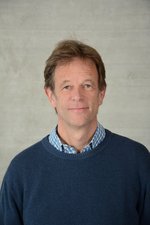The first Alumni Summer School was held in Trivandrum, India in October 2008. Jointly organised by the by graduates and academic staff of HFT and under the directorship of Professor Franz-Josef Behr, the foundations were laid for an interdisciplinary, international forum designed to facilitate the exchange of know-how and experiences in the field of Geoinformatic applications.
In 2009 a five-day congress took place in Stuttgart to celebrate the 10th anniversary of the Master programme Photogrammetry and Geoinformatics. The Summer School "Applied Geoinformatics for Society and Environment (AGSE)" has since been held annually each with a different focus and at different venues including: Arequipa(2010) - Peru, Nairobi - Kenya (2011), Jahor Bahru - Malaysia (2012), Ahmedabad - India (2013), Stuttgart - Germany (2014), Kish Island - Iran (2017) and Windhoek - Namibia (2018).
AGSE 2018, "Mother Earth: Geoscience for Crisis Management", took place at 12-16 November, 2018, Namibia University of Science and Technology (NUST) - Windhoek (Namibia). On the first day the following keynotes were given:
- The Namibia Spatial Data Infrastructure
- Private sector perspectives
- Open Source as Inner Habit and the Impact of the OSGeo Foundation
- Geospatial Support in the Context of Internal Displacement Caused by Natural Disasters
- Informal Urbanization and Housing in Namibia: Confronting a Humanitarian Crisis
- Geoinformation and GIS Applications in the Context of the Renewable Energy Revolution
- A Geospatial Platform for Disaster / Crisis Management
AGSE 2019
The events are set to continue with: AGSE 2019 "Digital Landscapes: Chances for Development" in Stuttgart (Germany) AGSE homepage
Testimonials
- "Participating at AGSE is a challenge for those presenting; but it is worth it - it shows us what is going on in the world in terms of GIS and Remote Sensing, OpenSource Technology and Environmental development. For me, attending this conference for the third time, I am grateful that UTM hosted this event and allowed us to spend a number of memorable days - professionally as well as personal. AGSE 2012 provided a number of different presentations, workshops worth attending and events that were organized by the UTM staff under Prof. Alias. Thank you UTM for hosting this event, I hope AGSE 2013 will be as memorable as this years' event was."
- "The master course of Photogrammetry and Geoinformatics gave us the theory and practice by professors, but in AGSE 2012, we received knowledge and experience from real life projects executed by alumni. Additionally, AGSE gives us the opportunity to be part of a net of professional around the world able and willing to cooperate from each other."
- "The conference was an enlightening and fruitful experience for me. Interacting and listening to GIS practitioners from different countries has broadened my views on global trends and applications of Geomatics technology. The knowledge that I have gained has truly encouraged me to further improve my utilization of this tool in future researches and projects."
- "Thank you so much for the opportunity to be part of the AGSE 2012 conference. It was a very fruitful and meaningful experience."
- "I am really impressed, inspired and motivated by AGSE 2012. Lots of useful presentations and workshops."
- "Thank you for the opportunity to participate in the conference, to get new knowledge from presenters and workshop lecturers."
- "Congratulations for having coordinated and conducted a successful conference AGSE 2012. The magnitude of achievement increases manifold!"
- "AGSE 2012 was a unique experience not only to share knowledge with great professionals related to the fields of Geoinformatics and Environment but also a great opportunity to meet wonderful people and a beautiful country. Thank you very much!"
- "The AGSE has imparted positively on the location based needs of developing nations and has sharpened skills of participating developed nations."
- "I am so happy and excited for participating such a nice conference. Many useful presentation and workshop, which is more helpful to me and my students here in India. I am very thankful to you and organizing committee to offered me and provided me opportunity to attend the conference."
![[Image: Florian Hammerich] lectures in Master Photogrammetry and Geoinformatics](/fileadmin/Dateien/Vermessung/_processed_/1/0/csm_vermessung-geoinformatik-vorlesung-pg_ba2a07f20f.jpg)
![[Image: Florian Hammerich] Zwei junge Frauen mit dunklen Brillengläsern](/fileadmin/Dateien/Vermessung/_processed_/e/2/csm_photogrammetry-geoinformatics-lectures-photogrammetry2_1c3968416c.jpg)
![[Image: Florian Hammerich] lectures in Master Photogrammetry and Geoinformatics](/fileadmin/Dateien/Vermessung/_processed_/1/0/csm_vermessung-geoinformatik-vorlesung-pg_1426bb9f07.jpg)
![[Image: Florian Hammerich] Photogrammtery lectures group photo with polarised glasses](/fileadmin/Dateien/Vermessung/_processed_/1/5/csm_photogrammetry-geoinformatics-lectures-photogrammetry3_6bd55be026.jpg)
![[Image: Florian Hammerich] lectures Master Photogrammetry and Geoinformatics](/fileadmin/Dateien/Vermessung/_processed_/f/a/csm_photogrammetry-geoinformatics-lectures_b05bbe9b45.jpg)
![[Image: Florian Hammerich] Studierende an Bildschirmen](/fileadmin/Dateien/Vermessung/_processed_/0/f/csm_photogrammetry-geoinformatics-lectures-photogrammetry1_f75be99a64.jpg)
![[Image: Florian Hammerich] Vermessung und Geoinformatik Vorlesung Geoinformatik](/fileadmin/Dateien/Vermessung/_processed_/9/3/csm_vermessung-geoinformatik-gis_1882c09a14.jpg)
![[Image: Florian Hammerich] lectures in Master Photogrammetry and Geoinformatics](/fileadmin/Dateien/Vermessung/_processed_/1/0/csm_vermessung-geoinformatik-vorlesung-pg_8b36f02ca5.jpg)
![[Image: Florian Hammerich] Studienalltag](/fileadmin/Dateien/Vermessung/_processed_/0/b/csm_vermessung-geoinformatik-studium1_3ac2363f7e.jpg)
![[Image: Florian Hammerich] lectures / study project with scanner camera](/fileadmin/Dateien/Vermessung/_processed_/f/d/csm_photogrammetry-geoinformatics-lectures-scannercamera2_52697b03d8.jpg)
![[Image: Studienbereich Vermessung] Akkreditierungsurkunde Master Photogrammetry and Geoinformatics](/fileadmin/Dateien/Vermessung/_processed_/d/7/csm_photogrammetry-geoinformatics-accreditation-asiin_70b9f1108b.jpg)
![[Image: Studienbereich Vermessung] Akkreditierungsurkunde EURACE Master Photogrammetry and Geoinformatics](/fileadmin/Dateien/Vermessung/_processed_/6/2/csm_photogrammetry-geoinformatics-accreditation-eurace_9b83d97301.jpg)
![[Image: Studienbereich Vermessung] DAAD Excellent Evaluation for Master Photogrammetry and Geoinformatics](/fileadmin/Dateien/Vermessung/Bilder/photogrammetry-geoinformatics-daad-excellent-evaluation.jpg)
![[Image: Studienbereich Vermessung] Graduates of Master Photogrammetry and Geoinformatics](/fileadmin/Dateien/Vermessung/_processed_/f/e/csm_photogrammetry-geoinformatics-graduates_f8392ebccd.jpg)
![[Image: Studienbereich Vermessung] Map with the worldwide distribution of Master Photogrammetry and Geoinformatics Alumni](/fileadmin/Dateien/Vermessung/_processed_/7/9/csm_photogrammetry-geoinformatics-graduates-countries_63580a8abf.jpg)
![[Image: Studienbereich Vermessung] Graduates of Master Photogrammetry and Geoinformatics](/fileadmin/Dateien/Vermessung/_processed_/f/e/csm_photogrammetry-geoinformatics-graduates_9b367707a5.jpg)
![[Image: Studienbereich Vermessung] AGSE Summer School 2019 Gruppenbild](/fileadmin/Dateien/Vermessung/_processed_/9/a/csm_photogrammetry-geoinformatics-agse2019_74924c950e.jpg)
![[Image: Studienbereich Vermessung] Messungen beim Integrierten Mess Projekt (IVP)](/fileadmin/Dateien/Vermessung/_processed_/8/e/csm_vermessung-geoinformatik-totalstation_c4f12d5c66.jpg)
![[Image: Florian Hammerich] Laserscanning](/fileadmin/Dateien/Vermessung/_processed_/4/d/csm_vermessung-geoinformatik-laserscanning_8c94fca95d.jpg)
![[Image: Florian Hammerich] Studierende an Bildschirmen](/fileadmin/Dateien/Vermessung/_processed_/0/f/csm_photogrammetry-geoinformatics-lectures-photogrammetry1_8dda5989fb.jpg)
![[Image: HFT Stuttgart] Studenten der Informationslogistik am 3D-Drucker](/fileadmin/Dateien/Vermessung/_processed_/5/9/csm_Studenten-Informationslogistik-3D-Drucker_885103cbe1.jpg)
![[Image: HFT Stuttgart] Messkammer Virtual Reality Industrie 4.0 Labor](/fileadmin/Dateien/Vermessung/_processed_/0/0/csm_Messkammer-Virtual-Reality-Industrie-4.0-Labor_7baa87cf3a.jpg)
![[Image: HFT Stuttgart] Schlauer Klaus Industrie 4.0 Labor Informationslogistik](/fileadmin/Dateien/Vermessung/_processed_/0/1/csm_Schlauer-Klaus-I4.0-Labor-Informationslogistik_62356ac122.jpg)
![[Image: HFT Stuttgart] Gruppenbild Fachbeirat Geodäsie der HFT Stuttgart](/fileadmin/Dateien/Vermessung/_processed_/0/f/csm_vermessung-geoinformatik-fachbeirat_88af0d64dc.jpg)
![[Image: HFT Stuttgart] RFID Messkammer Industrie 4.0 Labor Informationslogistik](/fileadmin/Dateien/Vermessung/Bachelor-Informationslogistik/Messkammer-I4.0-Labor-Informationslogistik.jpg)
![[Image: Alfred Max]](/fileadmin/Dateien/Vermessung/_processed_/f/9/csm_240621_ESRI_Anwendertreffen_2024_013_8fa2a10630.jpg)
![[Image: Studienbereich Vermessung] BDB-Preisübergabe 2025](/fileadmin/Dateien/Vermessung/_processed_/5/9/csm_BDB-Preis2025-01_796480b8b9.jpg)
![[Image: M.I. Rushdi] 3D Modell Mikro-Klima-Modellierung mit GIS](/fileadmin/Dateien/Vermessung/_processed_/3/c/csm_1.3D_Model_6116568033.png)
![[Image: HFT Stuttgart]](/fileadmin/Dateien/Forschung/_processed_/9/4/csm_2025_0225_Doktorarbeit_Yetai_Berhanu_Pruefer_mit_Jimma_University_ac594d1fe8.png)
![[Image: AK Fuseini] Master PG students in front of the castle of Karlsruhe](/fileadmin/Dateien/Vermessung/_processed_/a/5/csm_experiencing-karlsruhe_03_7522843ffd.png)
![[Image: HFT Stuttgart / Alfred Max] Dr. Gamini Jayathissa and Prof. Dr. Dietrich Schröder](/fileadmin/Dateien/Vermessung/_processed_/4/7/csm_231219_01_Jayathissa_Gastvortrag_7b9af42d88.jpg)
![[Image: HFT Stuttgart / Alfred Max]](/fileadmin/Dateien/Vermessung/_processed_/3/6/csm_230928_PG_Graduierungsfeier_02a_2c0f1a28bc.jpg)

